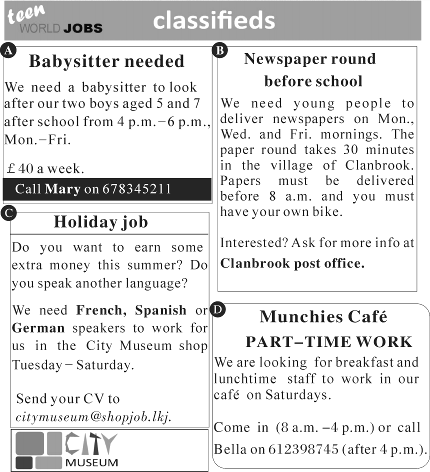题目内容
【题目】Human __________ is much more complicated than that of atoms, liquids or planets.
A. behaviour B. conduct C. manner D. doing
【答案】A
【解析】behaviour侧重指人的行 为、举止;conduct侧重根据社会道 德标准和责任感来评价的行为; manner主要用来指人的习惯行为; doing表示“所作所为"。

练习册系列答案
 智慧小复习系列答案
智慧小复习系列答案
相关题目





